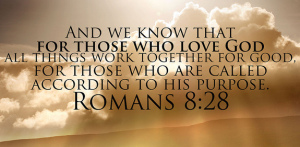The 21st Sunday in Ordinary Time - The Homily
What are you – member/volunteer or disciple/missionary?
Aug 21

What are you – member/volunteer or disciple/missionary?
The tree cannot lift itself by its roots. the tree - like us - needs the intervention of an outsider.
Maybe Christ has you in a crisis, NOT that you would look for Him, but that He might find you!
John Foley, S.J. tells the following story:
Some Jesuit brothers and I were scheduled to go out one time. I asked another brother - Pete - what time we were due to be there, and he said “I don’t know, but call and ask Joe.” Joe was another Jesuit who, on that particular Saturday, was working at his job at the Jesuit Conference Center. My friend put the kitchen phone on speaker and dialed the phone number.
Joe answered and Pete said, “Hi, how are you doing, Joseph?” Joe answered, “Just great.”
Pete said, “How wonderful, spending your entire weekend working!”
Joe came back semi-humorously and said, “No it is ok. God told me everything was going to be fine.”
Without skipping a beat Pete said, “Yeah, that’s what he told his Son too.”
In the first reading of Isaiah 40, we heard about wastelands, deserts, rugged land and rough country.

Listen to a poem:
We cry in the wilderness.
The land we walk is rugged and rough.
We find no easy highways,
only deep valleys and steep mountains.
Jesus - you are a light for us, and for all nations.
Open the eyes of the blind,
Grasp us by the hand and bring us prisoners out of our cells.

Do these words not describe your spiritual life at times? Do they not describe your human or work or family or medical life at times? Do we not sometimes feel like the Jesuit priest where we hear (like Romans 8:28) that everything will be alright and then we still get hammered? Where is God at times like this? What’s God doing?
God is not an enabler. God is like a parent - watching a teenager’s growing pains? He says:
“I will help you all I can, but I will definitely not get in the way of you having to grow. Temptation and suffering create an urgent need for you to open up, to broaden the scope of your vision about life and about others. This, in turn, helps you to better understand what love is and to see that love does not mean God taking charge and making everything alright. Rather it means I stay with you - the beloved son; the beloved daughter - continuing to love and admire you, since love at its root means sharing another’s life - not taking it over.
Why is this important? One web posting provides an answer:
Our culture loves comfort, it’s not a secret that we love drive-thru, air conditioning, and convenience. But we don’t just love comfort, we’re obs essed with it! We decided blankets were not quite comfortable enough - so we had to invent the Snuggie blanket and the electric ones with 9 different warmth settings.
essed with it! We decided blankets were not quite comfortable enough - so we had to invent the Snuggie blanket and the electric ones with 9 different warmth settings.
This love affair with comfort also carries over into our spiritual life. We don’t want to talk about the Cross. It makes us uncomfortable. We want to feel good about ourselves. We want “therapeutic Christianity.” But that’s not what Christ is offering us.

Pope Benedict XVI said: “The world offers you comfort. But you were not made for comfort - you were made for greatness.”
And so Jesus’ baptism is one of his earliest great transformations of our human condition. Christ came only to reveal the divinity to us; he came to reveal us to ourselves. Not only is he truly God, he is truly human. And he is fully human precisely because he did not sin - because sin is the rejection of the truth of our humanity. Jesus’ utter acceptance of our humanity, his drinking of our cup fully, his sharing of our wounded condition, reverses our sinful rejection of our humanity.
In his “Sermon on the Holy Manifestation” Hippolytus of Rome makes the following commentary:
Once we had descended into the depths, we were incapable of rising again to lofty heights. The Lord was not only baptized himself; he also renewed our fallen nature and restored to us our status as God’s children. When we read, “the heavens were opened to Him,” the world we see was reconciled with the world that lies beyond our vision; earthly disorders were remedied; mysteries were revealed; enemies were made friends, peoples of every nation were invited to come and receive immortality.
But there’s a catch:
The heavens were opened to him and a voice said: “This is my beloved Son in whom I am well pleased.” This is the beloved Son who appeared on earth without leaving his Father’s side. He both appeared - and did not appear, for he was not what he seemed.
St. Hippolytus of Rome continues:
To what does such a baptism call us? What do we expect? But more to the point, what does God expect? That over time and experience we will grow to maturity as human beings and that we will appreciate more and more fully both our roots and our potential. This all starts with Baptism. We grow over time into understanding of our meaning and its power, a meaning and mission and destiny that we sometimes don’t see. But we gain that insight and vision in as far as we grow over time into understanding this sacrament’s meaning and its power.
Audio version of the homily is here: